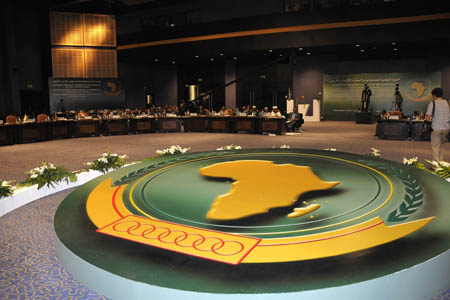African countries are still fall far behind the rest of the world in their trade performance due to high tariff rate, regulatory barriers and institutional constraints. According to the most recent Economic Freedom of the World report, only Mauritius ranked in the top 50 worldwide for freedom to trade Index (Check out free trade ranking of your country through http://atlasfreetrade.org/trade-freedom-map/). 16 African nations out of 26 that have been covered by the research remain in the bottom 50 worldwide. The tariff rates of the 26 African countries averages at 13.1% high, about 10 percentage points higher than the average developing and developed countries.
Africa has a significant proportion of the world’s natural resources, large reserves of fertile agricultural lands and over 1 billion population, which give it a comparative advantage in international trade and trade related growth. However, it is clear that this potential has yet to be reached in the past decade. It is critical for economists, businesses and individuals to work together and push for further trade related economic and political reforms in the region.
One of the daunting challenges African countries face is barriers to trade among neighbouring countries. Tariff and Non-Tariff barriers remain significant and fall most heavily on the poor, most of whom are women. According to the WTO report, fragmentation of states has been the primary reason for trade barriers across borders in Africa. Intra-African trade remain 10 to 20%, significantly lower than 70% among EU countries, 52% for East Asia and 50% for North American countries.
“The benefits to removing these barriers are enormous, they create larger market, diversify economies, enhance competitiveness of trade related businesses and reduce poverty,” Says director of AfricanLiberty.org Adedayo Thomas “ A major constraint to freedom to trade in and outside Africa is high transaction costs across borders in the region due to deficient infrastructures and large volume of illegal trade that distorts the market.”
In a most recent Ernst and Young report, over 300 companies operating on the continent have been surveyed, 60% of respondents said Africa had improved as a place to do business in the past three years and 73% said they expected the African business climate to improve further in the next three years. Businesses operating in Africa are mostly concerned about the mobility of highly skilled labour across borders, border management reducing transportation cost and inefficiencies and continued focus on infrastructure maintenance and anti-corruption.
The growing confidence in Africa is reflected in a stock of FDI growth of $340 billion between 2005 and 2010, most of which goes into natural resources. To improve the economic transformation of its economic growth, alleviating trade barriers across borders is critical in the next decade. Therefore, it is imperative economists, businesses and individuals need to work together through research and policy discussion.
Freedom to Trade Internationally is an index developed by Fraser Institute, that calculates the ranking based on Tariffs, Regulatory Trade Barriers, Black-market Exchange Rates, and Controls of the Movement of Capital and People. To learn more about how each factor is calculated check out: http://atlasfreetrade.org/trade-freedom-map-explanation-and-methodology/. If you are interested in research projects please contact: adedayo.thomas@gmail.com
[photo credit: African Union]


